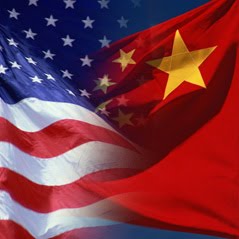Reprinted from Dispatches From The Edge

A combination of recent events underpinned by long-running historical strains reaching back more than 60 years has turned the western Pacific into one of the most hazardous spots on the globe. The tension between China and the U.S. "is one of the most striking and dangerous themes in international politics," says The Financial Times' longtime commentator and China hand, Gideon Rachman.
In just the past five months, warships from both countries -- including Washington's closest ally in the region, Japan -- have done everything but ram one another. And, as Beijing continues to build bases on scattered islands in the South China Sea, the U.S. is deploying long-range nuclear capable strategic bombers in Australia and Guam.
At times the rhetoric from both sides is chilling. When Washington sent two aircraft carrier battle groups into the area, Chinese defense ministry spokesman Yang Yujun cautioned the Americans to "be careful." While one U.S. admiral suggested drawing "the line" at the Spratly Islands close to the Philippines, an editorial in the Chinese Communist Party's Global Times warned that U.S. actions "raised the risk of physical confrontation with China." The newspaper went on to warn that "if the United States' bottom line is that China has to halt its activities, then a U.S.-China war is inevitable in the South China Sea."
Earlier this month China's Defense Minister Chang Wanquan said Beijing should prepare for a "people's war at sea."
Add to this the appointment of an extreme right-wing nationalist as Japan's defense minister and the decision to deploy anti-ballistic missile interceptors in South Korea and the term "volatile region" is a major understatement.
Some of these tensions go back to the 1951 Treaty of San Francisco that officially ended WW II in Asia. That document, according to Canadian researcher Kimie Hara, was drawn up to be deliberately ambiguous about the ownership of a scatter of islands and reefs in the East and South China seas. That ambiguity set up tensions in the region that Washington could then exploit to keep potential rivals off balance.
The current standoff between China and Japan over the Senkakus/Diaoyu islands -- the Japanese use the former name, the Chinese the latter -- is a direct outcome of the Treaty. While Washington has no official position on which country owns the tiny uninhabited archipelago, it is committed to defend Japan in case of any military conflict with China. On Aug. 2 the Japanese Defense Ministry accused China of engaging in "dangerous acts that could cause unintended consequences."
(Note: You can view every article as one long page if you sign up as an Advocate Member, or higher).





